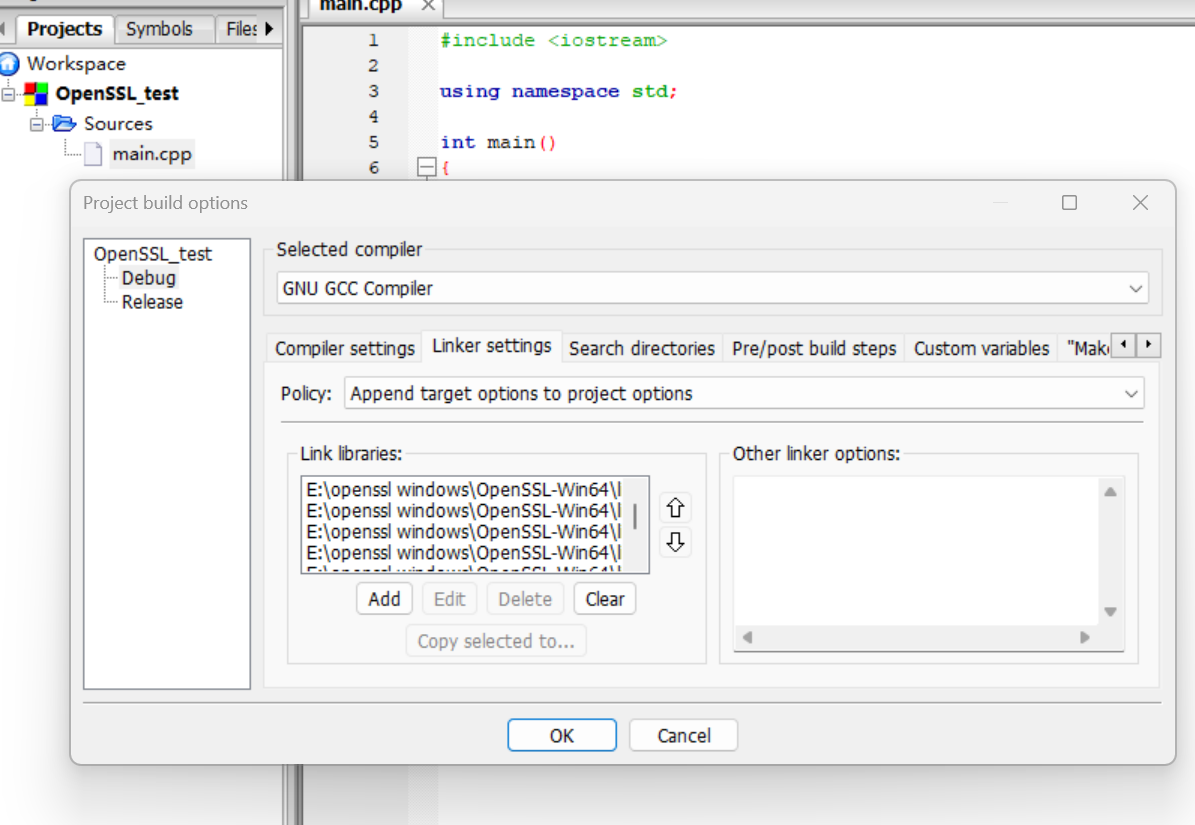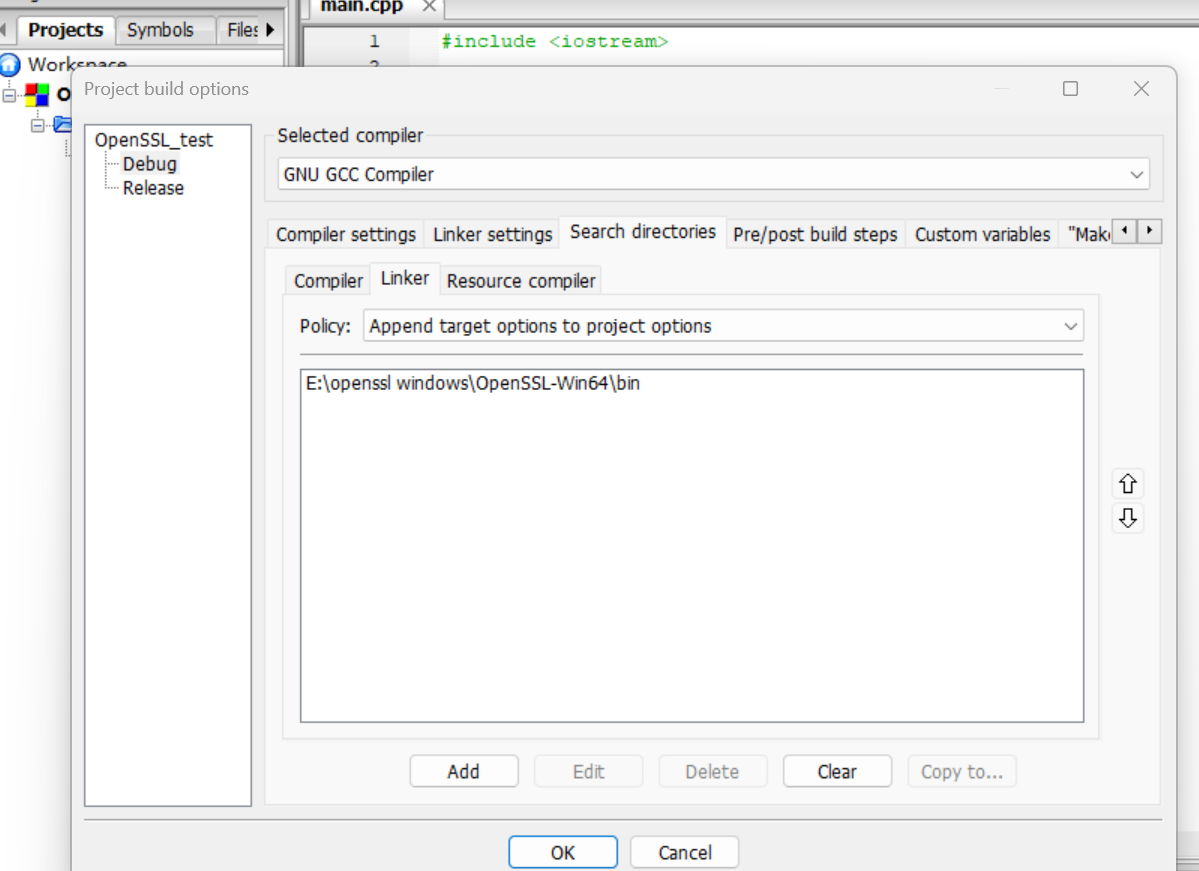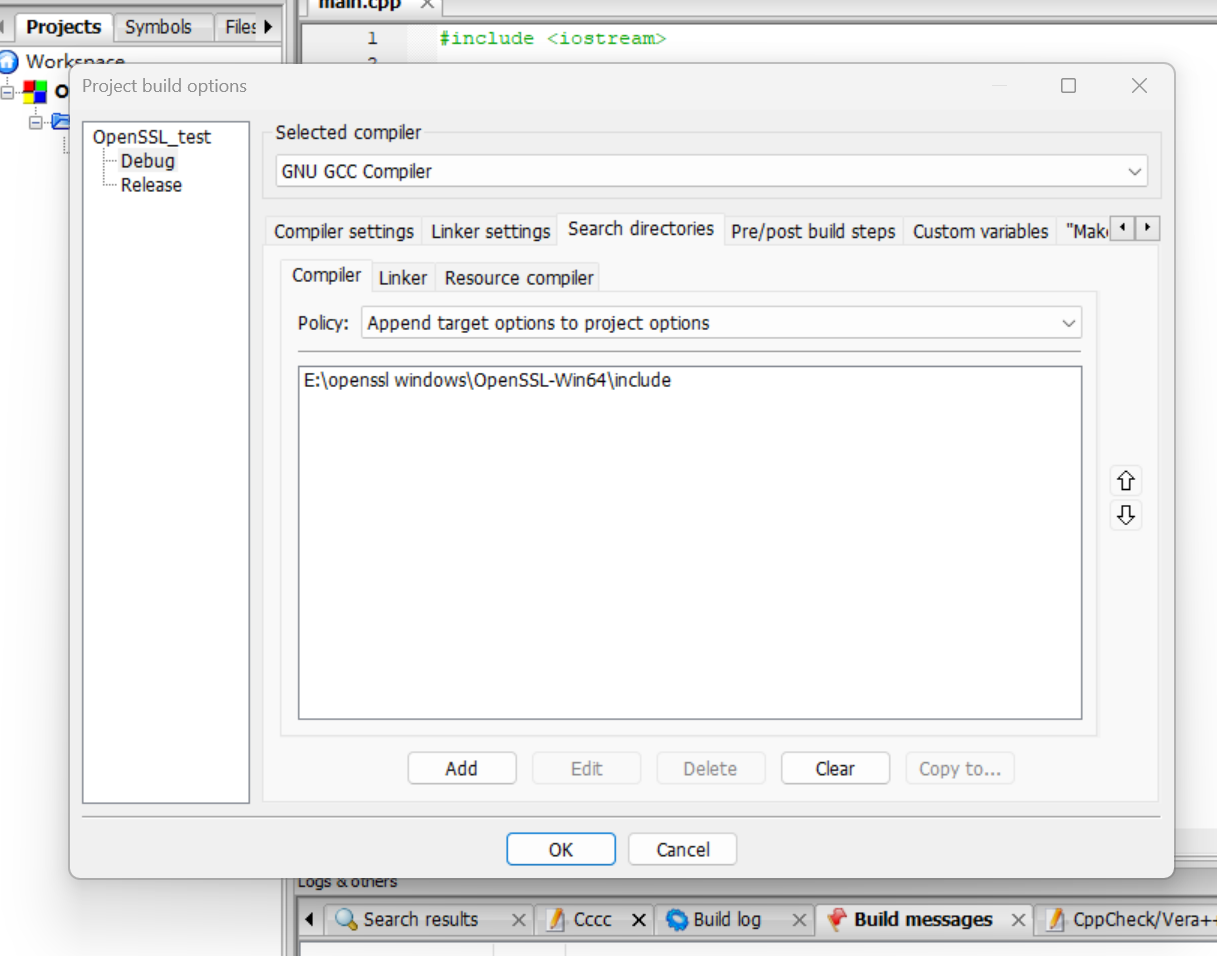在windows上安装编译OpenSSL
一、下载Openssl
二、链接库与头文件
1、为Openssl链接静态库
地址:Project->Build Options->Debug->Linker settings->Add 自己openssl安装目录下/lib下所有.lib文件

2、为Openssl链接动态库
地址:Project->Build Options->Debug->Search directories->Linker->Add 安装目录bin文件

3、为Openssl链接头文件
地址:Project->Build Options->Debug->Search directories->Compiler->Add 安装目录/include

三、编译运行
1、测试运行文件

2、编译代码测试
代码如下:
点击查看代码
#include <openssl/evp.h>
#include <openssl/bio.h>
#include <openssl/buffer.h>
#include <string.h>
#include <iostream>
using namespace std;
char * base64Encode(const char *buffer, int length, bool newLine);
char * base64Decode(char *input, int length, bool newLine);
int main(int argc, char* argv[])
{
bool newLine = false;
string input = "Hello World!";
char * encode = base64Encode(input.c_str(), input.length(), newLine);
char * decode = base64Decode(encode, strlen(encode), newLine);
cout << "Base64 Encoded : " << encode << endl;
cout << "Base64 Decoded : " << decode << endl;
cin.get();
return 0;
}
// base64 编码
char * base64Encode(const char *buffer, int length, bool newLine)
{
BIO *bmem = NULL;
BIO *b64 = NULL;
BUF_MEM *bptr;
b64 = BIO_new(BIO_f_base64());
if (!newLine) {
BIO_set_flags(b64, BIO_FLAGS_BASE64_NO_NL);
}
bmem = BIO_new(BIO_s_mem());
b64 = BIO_push(b64, bmem);
BIO_write(b64, buffer, length);
BIO_flush(b64);
BIO_get_mem_ptr(b64, &bptr);
BIO_set_close(b64, BIO_NOCLOSE);
char *buff = (char *)malloc(bptr->length + 1);
memcpy(buff, bptr->data, bptr->length);
buff[bptr->length] = 0;
BIO_free_all(b64);
return buff;
}
// base64 解码
char * base64Decode(char *input, int length, bool newLine)
{
BIO *b64 = NULL;
BIO *bmem = NULL;
char *buffer = (char *)malloc(length);
memset(buffer, 0, length);
b64 = BIO_new(BIO_f_base64());
if (!newLine) {
BIO_set_flags(b64, BIO_FLAGS_BASE64_NO_NL);
}
bmem = BIO_new_mem_buf(input, length);
bmem = BIO_push(b64, bmem);
BIO_read(bmem, buffer, length);
BIO_free_all(bmem);
return buffer;
}




【推荐】国内首个AI IDE,深度理解中文开发场景,立即下载体验Trae
【推荐】编程新体验,更懂你的AI,立即体验豆包MarsCode编程助手
【推荐】抖音旗下AI助手豆包,你的智能百科全书,全免费不限次数
【推荐】轻量又高性能的 SSH 工具 IShell:AI 加持,快人一步
· 被坑几百块钱后,我竟然真的恢复了删除的微信聊天记录!
· 没有Manus邀请码?试试免邀请码的MGX或者开源的OpenManus吧
· 【自荐】一款简洁、开源的在线白板工具 Drawnix
· 园子的第一款AI主题卫衣上架——"HELLO! HOW CAN I ASSIST YOU TODAY
· 无需6万激活码!GitHub神秘组织3小时极速复刻Manus,手把手教你使用OpenManus搭建本